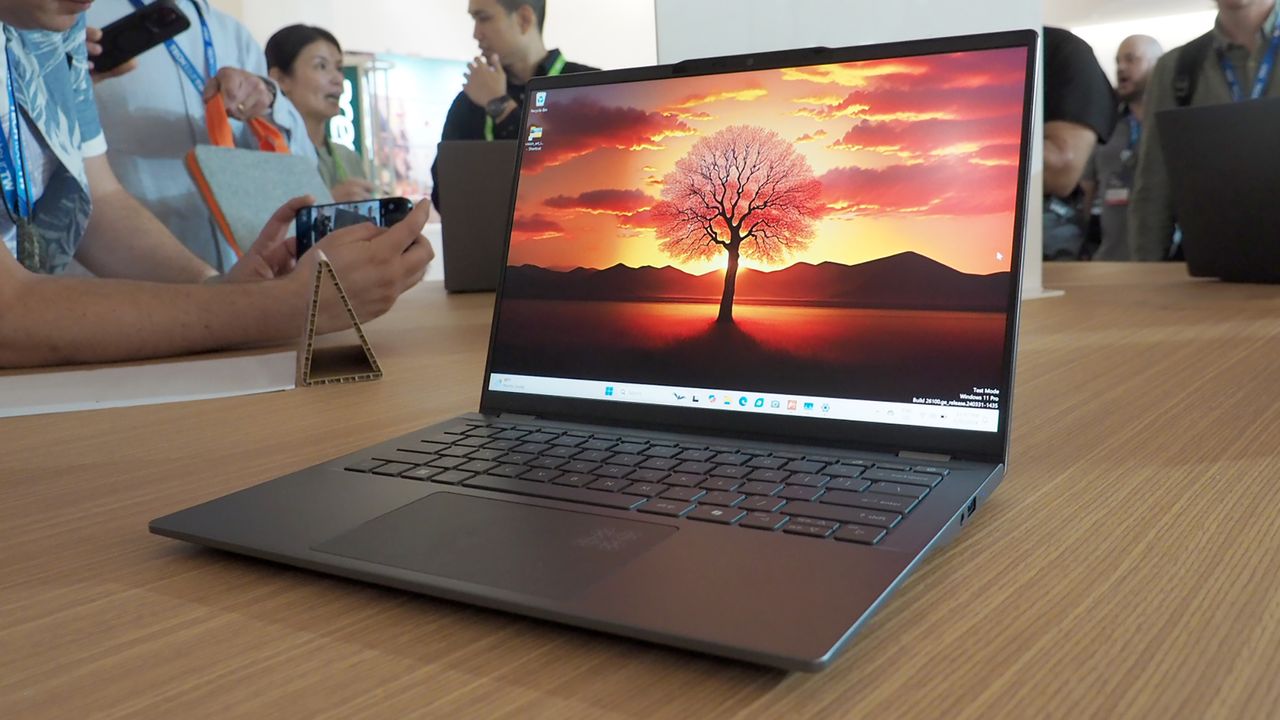
Quick Summary
Intel's Lunar Lake chipset will launch late 2024, bringing efficiency improvements for significant battery life gains. As a result, this could be the year that Windows laptops bring Apple MacBook-rivalling longevity.
More than any year before it, 2024 is shaping up to be a renaissance period for the best laptops – maybe you prefer to call them notebooks – as a broader range of companies reveal new chipsets with efficiency and artificial intelligence (AI) at their forefront. It's not only Apple's M-series catching all the attention.
Of those, Intel has just revealed a major new announcement that could see the chip-maker delivering Apple MacBook-rivalling Windows laptops when it comes to battery life. It's also the company's response to Qualcomm's Elite X platform imminently going on sale – with hardware expected from the middle of this month.
That's because Intel's latest chipset – codenamed Lunar Lake, which will appear in late 2024 as the power-efficient version of Intel Core Ultra chip options – uses around 40% less power than its current-gen (Meteor Lake) chips. But it's still just as capable (or even more so) when it needs to be.
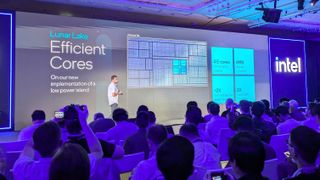
I attended the Intel Tech Tour, which happened ahead of Computex 2024 kicking off proper in Taipei, and the chip-maker gave its attendees a very – and I mean very – thorough deep-dive into the makeup of Lunar Lake chips. It was a thoroughly educational showcase to help understand exactly what's going on behind the scenes of some of 2024's future best lightweight laptops.
How is that 40% power reduction achieved? Intel's chip architecture divides four performance ('P') and four efficiency ('E') cores, while integrating RAM onto the chip itself – 16GB minimum to leverage the artificial intelligence (AI) potential, Intel tells me – to further save power. The E cores will be the go-to in many cases, with the P cores able to be switched off dynamically for power savings.
All of which means greater longevity potential. There aren't Lunar Lake chips out just yet – although I did see Acer's Swift AI laptop in operation at a Computex pre-show reveal – but Intel did show me some real-world comparisons during a YouTube playback session, showing massive power savings. I like the potential of where this is going.
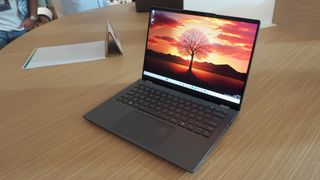
Artificial intelligence is becoming a major new aspect of chipset design, too, with Lunar Lake incorporating a neural processing unit (NPU) that's up to four times more powerful than before. Add new integrated Intel Xe2 graphics, with an up to 50% generation-on-generation boost for GPU, and Lunar Lake looks to be a strong contender.
Sign up to the T3 newsletter for smarter living straight to your inbox
Get all the latest news, reviews, deals and buying guides on gorgeous tech, home and active products from the T3 experts
It's not only Intel pursuing AI success, of course, with Microsoft's Copilot+ PCs also making a splash announcement in recent weeks. But Copilot+'s AI system has to be powered by something – after all, Microsoft doesn't make its own silicon – and that's where Intel is looking to take the lead against its AMD and new Qualcomm competition.
All of which sounds very exciting for me and you: the consumers. And while you might not care too much about the ins and outs of how your laptop is doing what it's doing, you will care about the gains. And if Lunar Lake means battery life in future Windows laptops then Apple's current grip on the best battery-life laptops may be about to change...

Mike is T3's Tech Editor. He's been writing about consumer technology for 15 years and his beat covers phones – of which he's seen hundreds of handsets over the years – laptops, gaming, TV & audio, and more. There's little consumer tech he's not had a hand at trying, and with extensive commissioning and editing experience, he knows the industry inside out. As the former Reviews Editor at Pocket-lint for 10 years where he furthered his knowledge and expertise, whilst writing about literally thousands of products, he's also provided work for publications such as Wired, The Guardian, Metro, and more.
-
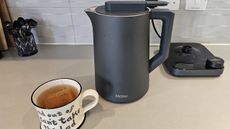 Haier I-Master Series 7 Kettle review: stylish, high-tech and pricey
Haier I-Master Series 7 Kettle review: stylish, high-tech and priceyA high-tech kettle with head-turning looks and smart features – but does it justify the hefty price tag?
By Lee Bell Published
-
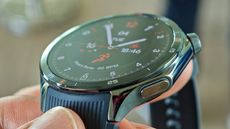 OnePlus Watch 3 review: stamina and smarts
OnePlus Watch 3 review: stamina and smartsA quality Wear OS watch that lasts; OnePlus’s Watch 3 is as good as it gets for Android-loving smartwatch-wearers tired of daily charges
By Basil Kronfli Published
-
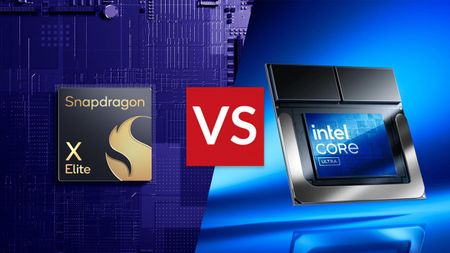 Qualcomm Snapdragon X Elite vs Intel Core Ultra Series 2: Which is best for AI laptops and why?
Qualcomm Snapdragon X Elite vs Intel Core Ultra Series 2: Which is best for AI laptops and why?These AI laptop brands are going to split any crowd – but which should you buy?
By Andrew Williams Published
-
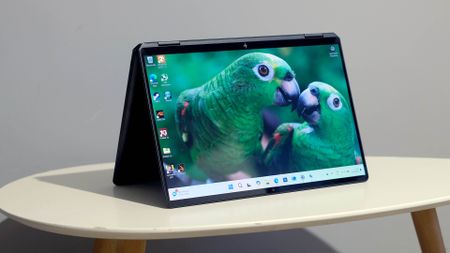 HP OmniBook Ultra Flip review: Ultrabook brilliance
HP OmniBook Ultra Flip review: Ultrabook brillianceThis is one of HP's best laptops in recent years
By Andrew Williams Published
-
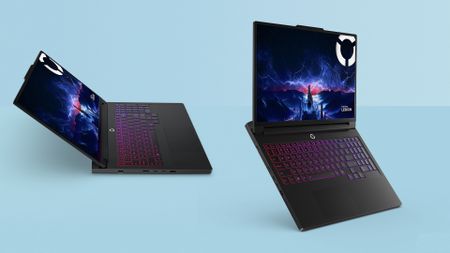 New Lenovo Legion Pro laptops look like total powerhouses
New Lenovo Legion Pro laptops look like total powerhousesThis is a serious gaming laptop with top-end specs
By Max Freeman-Mills Published
-
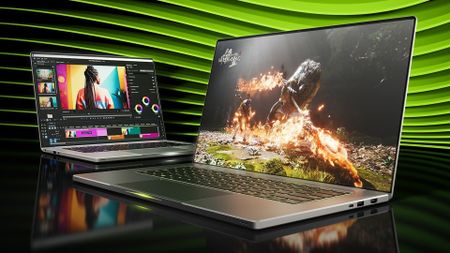 Gaming laptops that actually last? Nvidia's new cards promise a lot
Gaming laptops that actually last? Nvidia's new cards promise a lotThe GeForce RTX 50 series is here
By Max Freeman-Mills Published
-
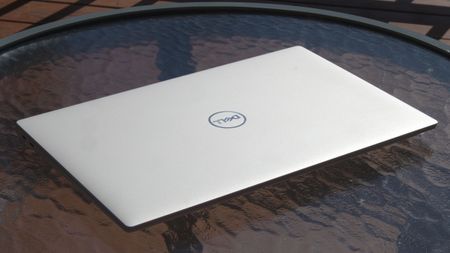 Dell kills its biggest brand in shock move
Dell kills its biggest brand in shock moveDell's CES news feels fairly massive
By Max Freeman-Mills Published
-
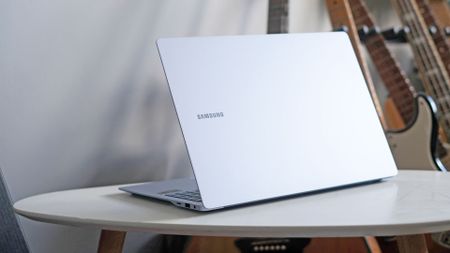 Samsung has a crazy plan for its foldable display tech – laptops might never look the same again
Samsung has a crazy plan for its foldable display tech – laptops might never look the same againThis laptop patent would be unlike anything else on the market
By Max Freeman-Mills Published
-
 Acer's new Chromebook Plus is an ideal option for students
Acer's new Chromebook Plus is an ideal option for studentsEverything you need to be in control on campus
By Andy Sansom Published
-
 You have to see (or not) this upcoming laptop to believe it
You have to see (or not) this upcoming laptop to believe itLenovo set to announce a unique laptop at MWC
By Andy Sansom Published
